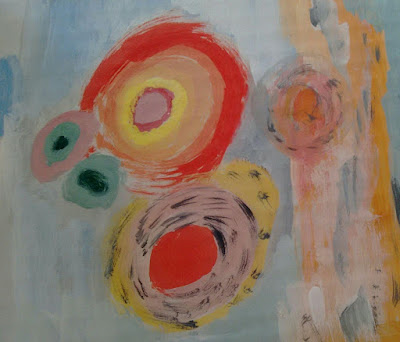Although I completed my coursework at Columbia in May 2020 and will not be back on campus for another year, I still feel so attached to this school and community and follow with interest what happens there. This attachment often manifests as being teary-eyed over my morning tea whenever I see a photo of the sunset over campus on Instagram, or, more rarely, in reading a headline, feeling anew the tension I used to feel daily in class, when professors and classmates seemed determined to shut down any dissenting opinion, all the while claiming to embrace free thinking and critical thought.
Yesterday morning in the New York Times, there was a photo of beautiful Low Library in the sunset, above a headline: "Some Students Want Colleges to Provide the Abortion Pill. Schools are Resisting." The article offered a glimpse into the political tension on campus and I, for once, felt grateful to be living so far away.
Back when I was a full-time student, I remember walking past a group of pro-life students from the Catholic ministry who had set up a stand in Lerner Hall. Across the table, they had taped the developmental stages of human life, from embryo to fetus to physical death, and were asking passer-by to take a guess at when human life began. I remember thinking to myself, We don't even know what life is, how can anybody say when it begins? Or ends, for that matter? Someone answered "At conception!" They were awarded a chocolate chip cookie.
As I have grown older, the question about life is increasingly about what and less about when. At times, it seems, the nature of life is strong and robust, even excessive. We are suffering from an excess of life and finally have the technology to emancipate ourselves from its original constraints. In other words, to separate form (including our own) from its original utility, and the meaning this association once brought. And yet there remains the inherent vulnerability of life, and the need for vulnerable people, especially children, pregnant people, the disabled, and the elderly, to be protected from a eugenicist, utilitarian economy that would rather they not exist at all.
Leo Tolstoy, in a poignant letter to a suicidal reader, expressed the strength and vulnerability of life in this way: "Life is indestructible - it is beyond time and space. Death can only change the form, ending its coming into being in this world." He compared the desire to kill oneself as akin to "wanting to cut off the buds of a plant we want to kill. The plant won't die, but will just grow unevenly."
Personally, the image I have settled on when thinking about life and its contradictions is a fetus in fetu, or a parasitic twin within a fetus, which, for me, is the perfect representation of, all at once, vulnerability, strength, excess of life, indeterminacy, potentiality, and the suffering engendered by embodiment. Googling "fetus in fetu," one can see a variety of manifestations of this form of life. You won't find them on the signs of protestors.
Black and white thinking about right action towards life is probably only possible for people for whom physical circumstances perfectly align with their intentions. Definitely not for the fetus in fetu. Nor for many of us: someone whose gender expression differs from their reproductive utility; someone whose intentions not to have children are not shared by their body; someone who would like to have children but whose material situation, due to the aforementioned eugenicist, utilitarian economy perhaps, does not allow for it.
So while I may or may not share the physical circumstances or intentions of others, while I may or may not agree with them on the absolute urgency to dissociate form from its original utility (because maybe that is not meaningful to me), my experience of suffering from being a body in a world not always supportive of my dreams - of my being a form broken from its origin - is the grounds of the compassion I feel indiscriminately for all others, and for all who have shared our common embodied predicament across time, born or unborn, physically alive or not.
There is no objective answer to the question of life, and this is, I think, what unsettles people most about the issue of abortion: unwanted or dangerous pregnancies remind us that life is both strong and vulnerable. Not just life generally, but our own life and experience.

